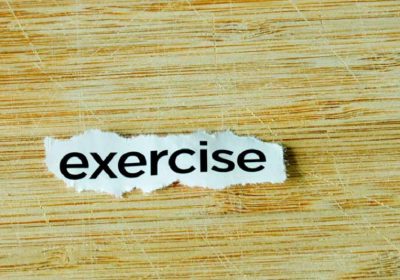
When to Exercise After Bariatric Surgery
Bariatric surgery is a powerful tool for weight loss and improving health, but long-term success requires a commitment to healthy lifestyle changes, including physical activity. For those who have undergone weight loss surgery in NY, understanding when and how to start exercising is crucial for maximizing results while ensuring a safe recovery.
Exercise helps maintain weight loss, boosts metabolism, and improves overall health. However, it’s essential to approach physical activity carefully during recovery to avoid complications and gradually build endurance.
Why Exercise Is Important After Bariatric Surgery
Regular exercise offers numerous benefits to bariatric surgery patients, including:
- Promoting weight loss maintenance
- Enhancing cardiovascular health
- Increasing energy levels and reducing fatigue
- Improving muscle tone and strength
- Boosting mental health and reducing stress
In addition, exercise supports better mobility and reduces joint strain, helping patients enjoy an active lifestyle. To learn more about how bariatric surgery improves physical health, explore this article on how weight loss surgery can improve mobility and joint health.
When Can You Start Exercising After Bariatric Surgery?
First Few Weeks: Focus on Rest and Recovery
In the first 2-4 weeks following surgery, the priority is allowing your body to heal. Patients are encouraged to focus on light activities, such as walking, to prevent blood clots and improve circulation. Walking also helps reduce stiffness and boosts energy levels without straining the body.
4-6 Weeks: Incorporate Low-Impact Activities
By the fourth to sixth week, patients can gradually introduce low-impact exercises. These may include:
- Light stretching
- Stationary cycling
- Gentle Yoga
These activities strengthen muscles, improve flexibility, and help establish an exercise routine. It’s essential to listen to your body and avoid any movements that cause discomfort.
6-12 Weeks: Transition to Moderate Exercise
Between six and twelve weeks, patients can start incorporating moderate exercises, such as:
- Swimming
- Brisk walking
- Resistance training with light weights or resistance bands
During this phase, focus on gradually building strength and endurance. Always consult your surgeon or physical therapist to ensure you’re progressing safely.
3 Months and Beyond: Full-Body Workouts
Three months post-surgery, most patients are ready to engage in more dynamic exercises, such as:
- Jogging or hiking
- Strength training with heavier weights
- High-intensity interval training (HIIT)
These exercises help maintain weight loss, improve cardiovascular health, and build lean muscle mass. Incorporating exercises for optimal health after weight loss surgery helps patients improve strength, maintain weight loss, and enhance overall well-being.
Tips for Exercising Safely
Start Slowly and Build Gradually
Avoid rushing into intense workouts immediately after surgery. Begin with short sessions and gradually increase the intensity and duration as your body adapts.
Listen to Your Body
Pay attention to signs of discomfort or fatigue. Stop exercising and consult your healthcare provider if you experience pain, dizziness, or nausea.
Stay Hydrated
Proper hydration is essential during exercise to avoid dehydration, a common concern after bariatric surgery. Sip water throughout the day and during workouts.
Wear Comfortable Clothing and Supportive Shoes
Proper attire ensures comfort and minimizes the risk of injury while exercising.
Working with a Professional
Consider working with a physical therapist or certified trainer experienced in bariatric recovery to develop a safe and effective exercise plan.
Long-Term Benefits of Exercise
Regular physical activity supports long-term weight loss maintenance and enhances overall well-being. Exercise also reduces the risk of chronic conditions like diabetes, heart disease, and high blood pressure, which are often associated with obesity.
Additionally, maintaining an active lifestyle helps improve mental health by reducing stress, boosting confidence, and fostering a positive outlook.
Conclusion
Exercise is integral to recovery and long-term success after weight loss surgery. You can safely build strength and endurance by starting with light activities, progressing gradually, and listening to your body. Regular physical activity with a healthy diet and consistent follow-up care ensures you achieve your weight loss goals while enjoying improved physical and mental health. Making exercise a part of your daily routine sets the foundation for a healthier, more active lifestyle.


















